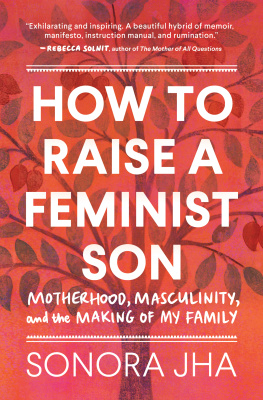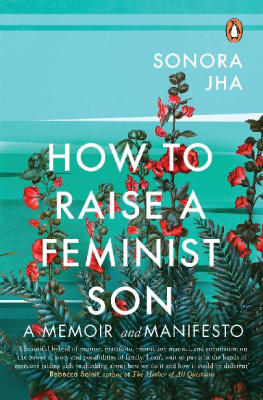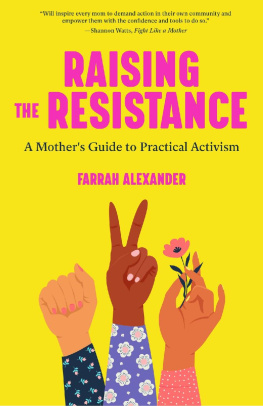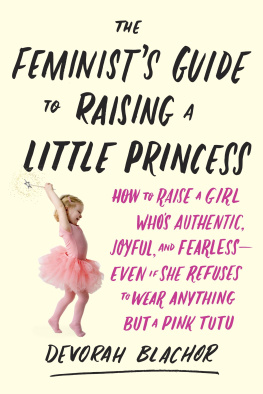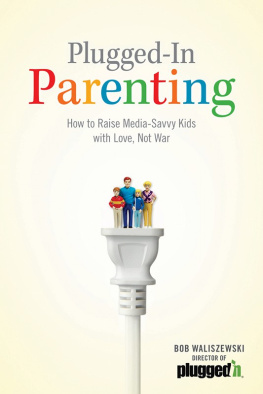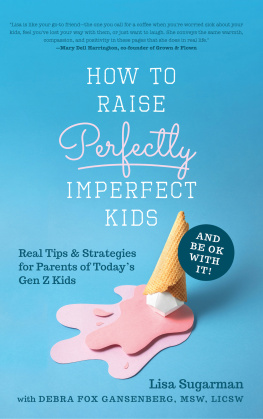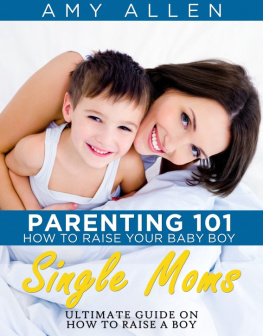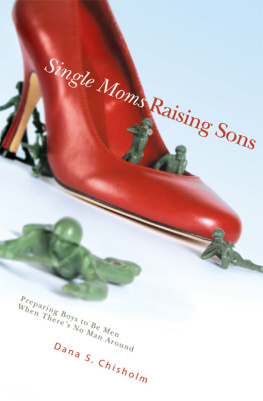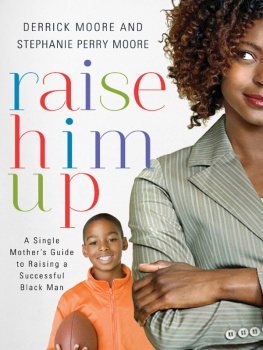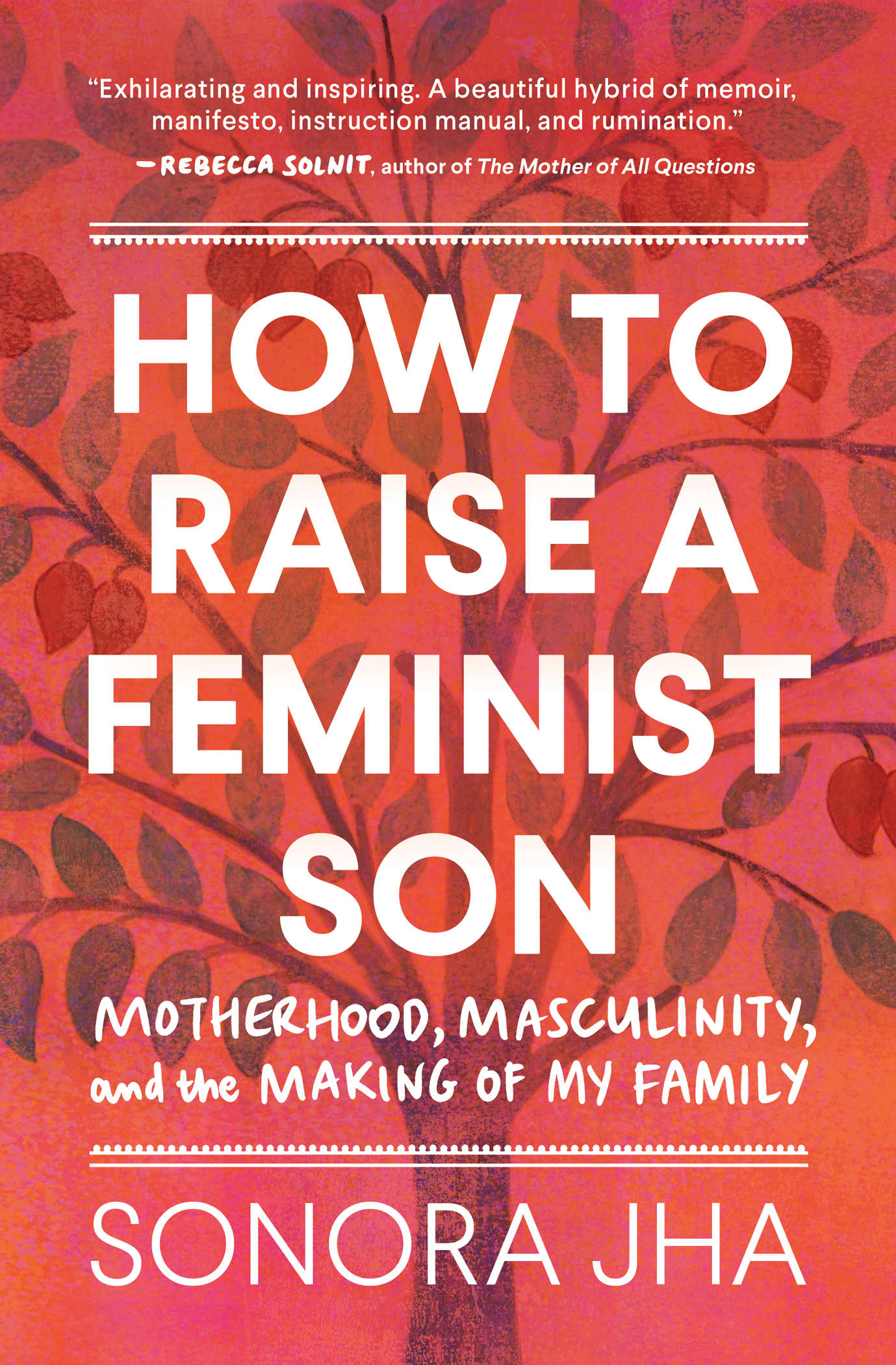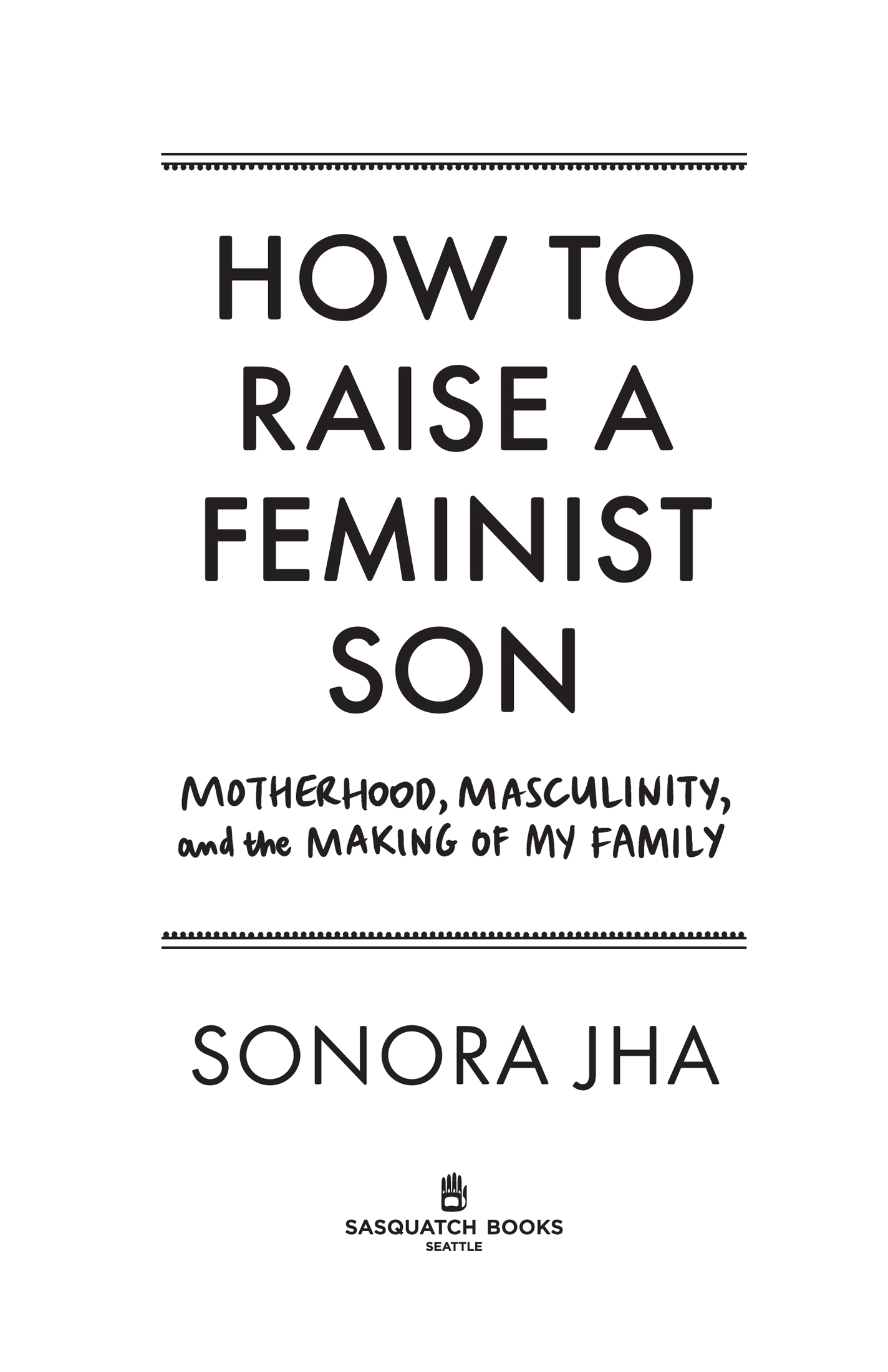A love story for feminists who hope to change the world, one boy at a time
From teaching consent to counteracting problematic messages from the media, well-meaning family, and the culture at large, weve got big work to do when it comes to our boys. This empowering book offers much-needed insight and actionable advice. Its also a beautifully written and deeply personal story of struggling, failing, and eventually succeeding at raising a feminist son.
Informed by the authors work as a professor of journalism specializing in social justice movements and social media, as well as by conversations with psychologists, experts, and other parents and boys, this book follows one mothers journey to raise a feminist son as a single immigrant woman of color in America. Through stories from her own life and wide-ranging research, Sonora Jha shows us all how to be better feminists and better teachers of the next generation of men in this electrifying tour de force.
Copyright 2021 by Sonora Jha
All rights reserved. No portion of this book may be reproduced or utilized in any form, or by any electronic, mechanical, or other means, without the prior written permission of the publisher.
SASQUATCH BOOKS with colophon is a registered trademark of Penguin Random House LLC
Editor: Hannah Elnan
Production editor: Bridget Sweet
Designer: Anna Goldstein
Cover photo (of wall art in the Amber Fort, Jaipur, India)
by Martin Bache / Alamy Stock Photo
This book grew out of material that appeared in the form of the essays To Raise a Feminist Son, Talk to Him About Aziz Ansari (Establishment, January 17, 2018) and We Need Boys to Dismantle the Patriarchy (DAME, October 16, 2018), parts of which became chapters eight and six, respectively.
Library of Congress Cataloging-in-Publication Data
Names: Jha, Sonora, author.
Title: How to raise a feminist son : motherhood, masculinity, and the making of my family / Sonora Jha.
Description: Seattle : Sasquatch Books, [2021] | Includes bibliographical references.
Identifiers: LCCN 2020037529 (print) | LCCN 2020037530 (ebook) | ISBN 9781632173645 (hardcover) | ISBN 9781632173652 (ebook)
Subjects: LCSH: Jha, SonoraFamily. | Mothers and sons. | Parent and child. | Feminism. | Masculinity.
Classification: LCC HQ755.85 .J493 2021 (print) | LCC HQ755.85 (ebook) | DDC 306.874/3dc23
LC record available at https://lccn.loc.gov/2020037529
LC ebook record available at https://lccn.loc.gov/2020037530
ISBN9781632173645
Ebook ISBN9781632173652
Sasquatch Books
1904 Third Avenue, Suite 710
Seattle, WA 98101
SasquatchBooks.com
a_prh_5.6.1_c0_r0
FOR MY SON
AUTHORS NOTE
In using son in the title and sons/boys in the theme of the book, I am choosing to focus on the urgent task of raising cisgender boys to be feminists, but I also address other intersectional identities within these chapters. This book is for anyone with an interest in feminism, but its especially for those who have influence on the raising of boys. Most of us do.
I have changed the names of most people I know except for the experts I have quoted, public figures, and some friends. I have collapsed some time spans and have focused on those people and those parts of my story that I believed were central to the theme. I have relied on my memory to tell my truths of moments in my life and in the life of my son. Others may recall some of the shared moments differently.
Prologue
HOW I RAISED A FEMINIST IN THE DARK
In Jordan Peeles Us, there is a scene quite early in the film when a boy says, Theres a family in our driveway. If you have seen the film, you know this is the pivotal moment that sets the mayhem in motion. We see a man, woman, and two children holding hands, standing silhouetted in the driveway of a vacation home, looking in on the people inside.
All hell is about to break loose in the film, but I am distracted. How did the boy know to call that group of people in the driveway a family? Is it because thats all he knows and sees reflected, being part of a wholesome American family himself? Is it because theres that sticker on his family car of a stick-figure man and woman and boy and girl holding handsyou know the one Im talking aboutdepicting a family? If my son and I showed up in someones driveway to stand, holding hands quietly, silent and backlit for some reason, would we be as eerie? Would the boy looking out at us call us a family?
I know the answer to that question and it is no. I dont even call our single-mother-and-only-child unit a family. I should, but I dont. As I lean back into watching the film, shaking off my spoiler thoughts, suspending disbelief so I can hand myself over to the deliciously escapist terror reserved for wholesome families, I sneak a look at my adult son in the seat next to me and then back at the screen as a family attempts to kill a family, and I wonder if Jordan Peele doesnt care for traditional families either. I am oddly comforted by this thought.
This is why we go to the movies, my son and I. These beautiful things that glow in the dark, these reels of thought and story sent to us from imagination factories, connect Gibran and me in our reimagined life together. Here, we are far from my violent family in India, from the poor role models of masculinity there to which I would have had to hand my boy over had we not found our temple in these seats at the movies.
You could argue, of course, that Hollywood, Bollywood, and any other film industry in the world are hardly temples of feminist thought and representation. In fact, they are mostly quite the opposite. And yet, although I didnt know it for years, I was building a tenderhearted, sharp-witted feminist boy at the movies.
The task of raising a boy into a man with a feminist consciousness sometimes involves stealing him away from the quotidian misogyny and its twenty-four-hour infractions, and leading him into the fantasies conjured up by twenty-four frames per second. Feminism, like film, requires a suspension of disbelief. It requires that we trust that a little girl can use her wit and courage to rescue her parents when her father makes a wrong turn into a ghostly world in Hayao Miyazakis Spirited Away. It suggests that my son trust that Nancy Chan, who sat next to him in his third-grade classroom, is smarter than him and will one day be President of the United States.

